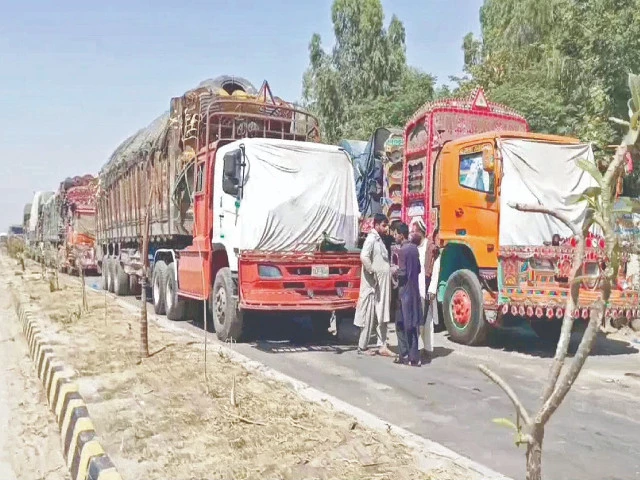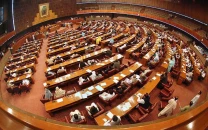Protests against Cholistan Canal disrupt drug supply chain
Experts warn of heat damage to medicines

The blockade of the highways because of the ongoing protest movement against the construction of new canals on Indus river could have devastating impact on the supply of medicines from Sindh to Punjab and other provinces, experts warned on Thursday.
Because of the blockade, the trucks, carrying different medicines remained stuck on traffic snarls at different places on the National Highway, the Indus Highway and other roads going to Punjab. However, experts said that rising summer heat was the bigger problem here.
According to experts, medicines and pharmaceutical chemicals left in the sun or heat for a long period of time could pose a threat to public health, because the high temperatures could compromise the quality of the medicine and in many cases rendered them totally ineffective.
"Excessive heat and humidity can damage the structure of the chemicals in medicines, which makes them less effective or ineffective," Muhammad Wasil, the spokesperson for the Citizen Health Foundation (CHF) told The Express Tribune.
In some cases, toxic by-products could also be formed, in particular, syrups and suspensions may thicken. The intensity of heat may weaken the sealing and packaging of bottles and as a consequence, air or moisture could mix with the medicine," Wasil pointed out.
The Pakistan Chemists and Druggists Association (PCDA) – which represents those associated with all aspects of the pharmaceutical trade – acknowledged that the supply of the medicines faced obstacles because of the closure of the highways in Sindh.
PCDA Chairman Abdul Samad Memon told The Express Tribune that the suppliers were adopting alternative routes to transport the medicines in time. "Important medicines are being sent by air, as the logistics companies have stopped taking stocks for delivery by land," Memon said.
For the time being, Memon saw no threat of medicine shortage in the country. "A stock, sufficient for one to one and a half months is kept in each city, while the most of the medicines that required the cool chain are sent by air," he maintained.
Memon and Wasil confirmed that the containers stuck at the Sindh-Punjab border also includes medicines and pharmaceutical chemicals. "If the highways closure stretched further, it could create a shortage of medicines," Memon stated.
Consumer bodies and experts pointed out that according to the Drug Regulatory Authority of Pakistan (DRAP) and the World Health Organization (WHO) standards, common medicines should be stored between 15 to 30°C.
They have advised the government to monitor the stock stuck in transit and confirm its efficacy through laboratory tests. They said that medicines, which did not meet the standards should be destroyed, so that the possibility of loss of human lives could be eliminated.





















COMMENTS
Comments are moderated and generally will be posted if they are on-topic and not abusive.
For more information, please see our Comments FAQ